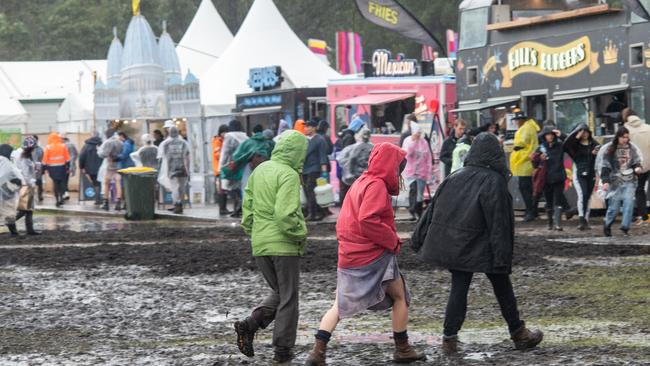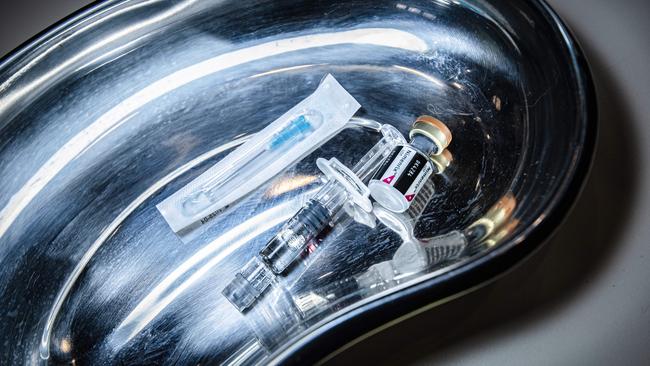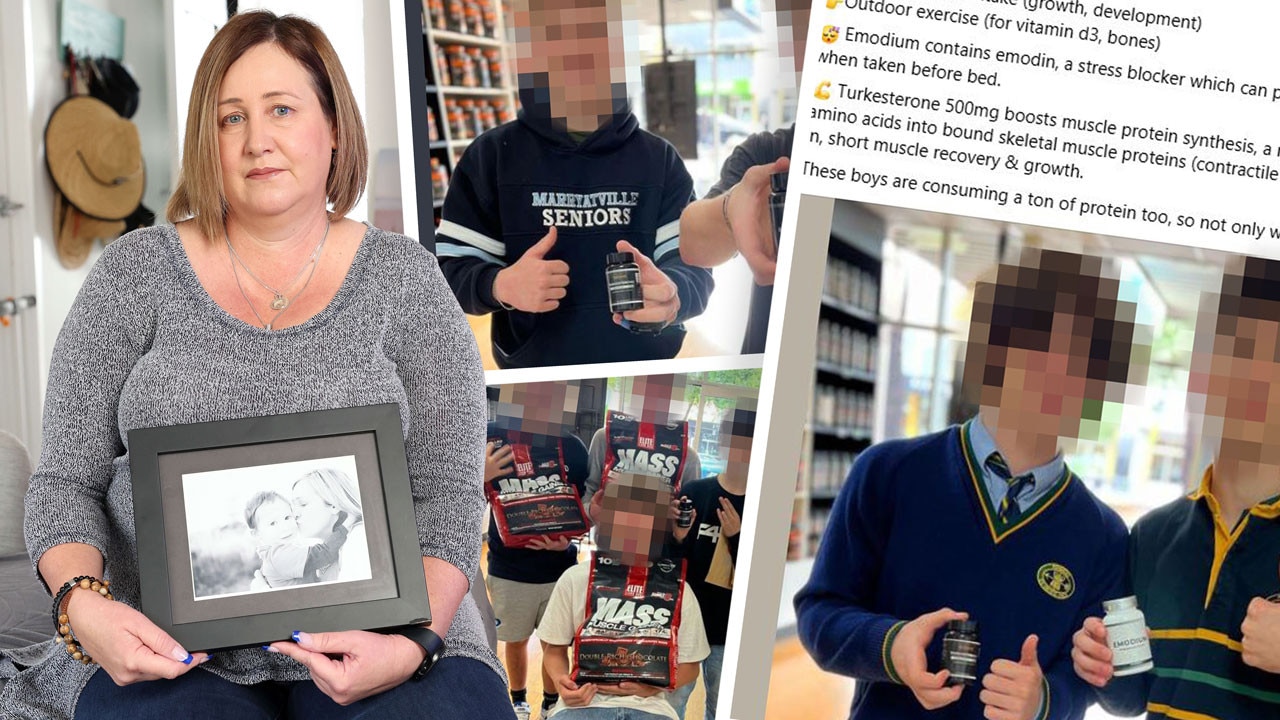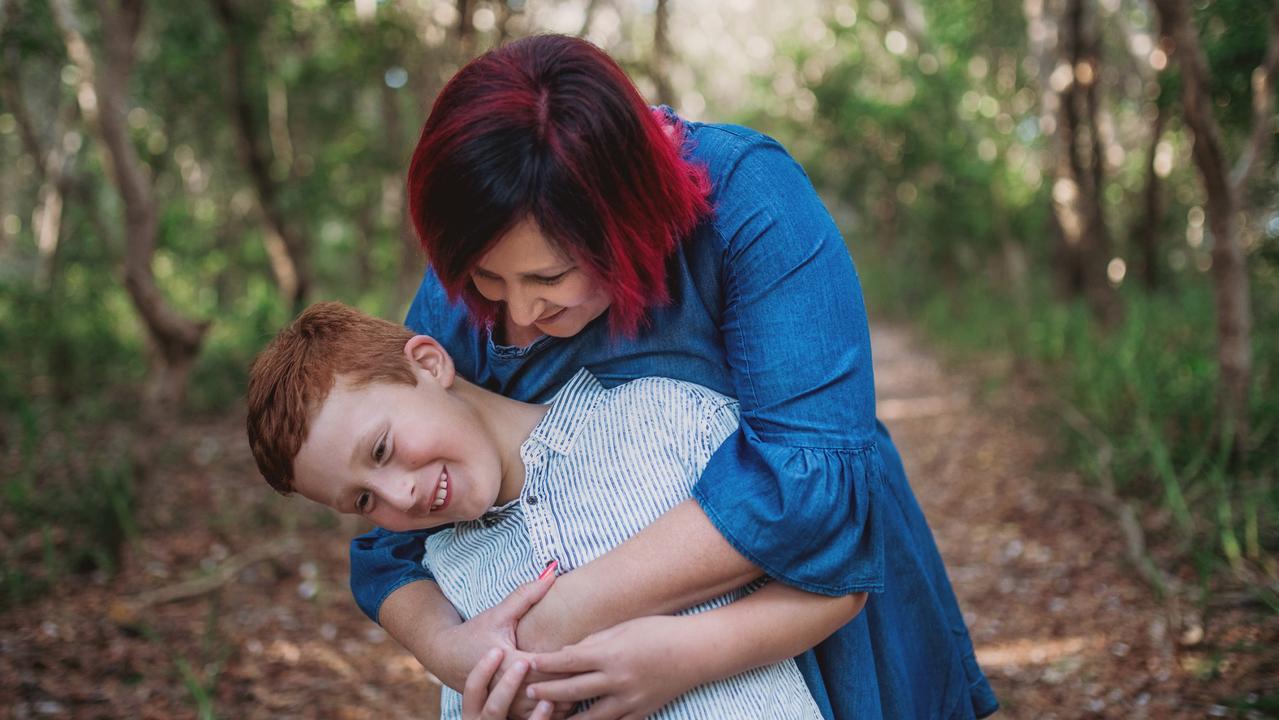What you need to know about the meningococcal cases at Splendour in the Grass
Experts have revealed the worrying signs of a deadly disease after a man in his 40s died at Splendour in the Grass.

Health
Don't miss out on the headlines from Health. Followed categories will be added to My News.
NSW Health has issued a public health alert for meningococcal disease after two cases were reported in people who attended this year’s Splendour in the Grass music festival in northern NSW.
Meningococcal is a contagious infection classified as a medical emergency by health authorities because it can be fatal within hours. The infection occurs when the meningococcus germ, which lies dormant in many people, invades the throat and travels to the bloodstream to cause poisoning.
A man in his 40s died after contracting the disease at the festival at the North Byron Parklands on July 21 -24. Another case has been identified by NSW Health but further details aren’t known.
NCA NewsWire spoke to infectious diseases expert Dr Robert Booy to answer your questions about the fast-acting disease.
Could I have contracted the disease at Splendour?
According to Dr Booy, the proximity of festival-goers means the chance of spreading the infection is heightened.
“There are a number of examples where people have been to either a festival or a football stadium and we’ve had two, three, up to four cases,” he said.

“It’s not common but it’s well recognised and it’s due to close contact, to crowding, and to people standing next to each other (while) singing, dancing, and shouting.”
The University of Sydney professor noted that singing and shouting (requisite activities at a festival) release a lot of particles into the air, which people nearby will breathe in.
If someone is carrying the dormant meningococcus germ and releases it while singing, it can easily be transmitted to nearby revellers.
Dr Booy also warned that kissing is a sure-fire way to transmit the infection.
How will I know if I have meningococcal?
NSW Health warns that symptoms can appear suddenly and quickly become very serious.
Dr Booy said people should be extremely vigilant if they think they’ve been exposed to the disease, and urged festival attendees to monitor closely for symptoms.
“People should look out for the three or four classic symptoms: a headache, a fever, a rash and the rash is little spots where the colour doesn‘t go away when you press on them,” he said.
“If they’re feeling unwell, they may notice their hands and feet feel very cold.”

NSW Health advice lists other symptoms that include severe limb pain, lethargy, sensitivity to bright lights and a stiff neck.
Dr Booy said people have a “golden hours” window of 12 to 36 hours to identify symptoms of meningococcal and seek immediate treatment.
“The golden hours are during which time you’re deteriorating and your blood pressure is dropping and you’re developing shock,” the former Head of Clinical Research at the National Centre for Immunisation Research and Surveillance at Westmead Children’s Hospital said.
“During that time, if you get treated with fluid and antibiotics you can save a life.”
He urged anyone who feels unwell to see their doctor or go to the hospital if they’re feeling very unwell.
What should I do if I think I’ve been exposed?
Dr Booy said the best thing to do is to keep an eye on your mates and fellow attendees, and make sure to monitor for symptoms.

“If you’ve been at Splendour in the Grass, you need to look out for your friend and your partner,” he said.
“Check that being groggy isn’t just a headache, being groggy isn’t just a hangover, it might actually be an infection.”
Will I die?
Up to one in ten cases of meningococcal result in death in Australia, according to the infectious diseases expert.
“Most cases survive with disability,” Dr Booy said.
NSW Health reports that 40 per cent of meningococcal cases result in permanent disability, which can range from loss of limbs to learning difficulties.
How can I protect myself against meningococcal?
As we have heard repeated many times over the past two years, vaccination is the key to prevention.
Older readers will remember there was an outbreak of meningococcal in Australia in the early 1990s before vaccinations were introduced for all children in 2003.

The National Immunisation Program now provides free meningococcal vaccines to babies at 12 months old, adolescents in Year 10, and people with certain medical conditions.
NSW Health reports there has been a surge of 15 cases of meningococcal in the state this year after two years of reprieve due to the closed international borders.
Dr Booy said the number of meningococcal cases is less than pre-pandemic levels.
Originally published as What you need to know about the meningococcal cases at Splendour in the Grass



